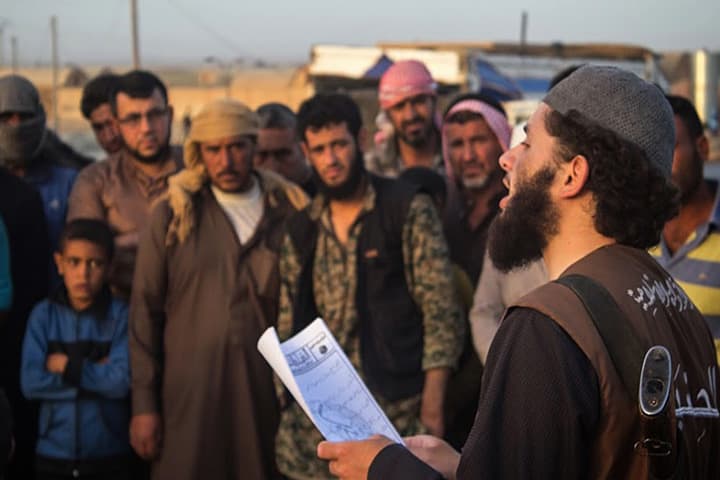Advertisement
Should We Go All-In On ISIS?
ResumeNew York Times columnist Roger Cohen says the US needs to step up in the fight against ISIS. But there’s a caution flag, too. We’ll dive in.

The heat on President Obama to go heavy with military action against ISIS is high now. There are body bags in Paris, multiple deadly ISIS attacks outside its self-proclaimed caliphate, and a political season on in the US that amps up everything. Critics say that in his determination to get the US out of a central role in the Middle East, Obama has been too restrained. And ISIS has grown. The President is clearly skeptical of big intervention. But the debate is on, again. This hour On Point, the next move. Roger Cohen calls for rage and NATO intervention. Barry Posen says even now, restraint.
-- Tom Ashbrook
Guests
Roger Cohen, columnist for the New York Times, where he writes about international affairs and diplomacy. (@NYTimesCohen)
Barry Posen, professor of political science at the Massachusetts Institute of Technology, where he is the director of the Security Studies program. Author of "Restraint."
From Tom’s Reading List
New York Times: Body Bags in Paris -- "This border-straddling ISIS sanctuary must be eliminated, just as the Afghan safe haven of Al Qaeda was after 9/11 (before the disastrous distraction of Iraq). Raqqa is much closer to Europe than Tora Bora. ISIS has effective terrorists but indifferent soldiers. They are beatable. Kurdish militias — not the U.S. military by any means — have made rapid inroads. They and other local forces can help."
The Atlantic: Contain ISIS — "The wars in Iraq and Afghanistan should have taught Americans to think twice about the understandable but impulsive pursuit of quick and decisive victories in response to murderous outrages. American attempts to reorganize the politics of other countries by the sword have foundered on nationalist resistance to outsiders, unreliable local allies, deeply embedded cultural practices, and the inherent crudeness of the military instrument."
Foreign Policy: Don't Give ISIS What It Wants — "We cannot hope to reduce the danger from this sort of violent extremism if we do not understand and acknowledge its origins. Contrary to the writings ofcontemporary Islamophobes, jihadi violence is not intrinsic to Islam. The Quran explicitly forbids attackson innocent noncombatants, and the vast majority of devout Muslims around the world utterly reject such actions. To blame these attacks on “Islam” is like blaming Christianity for the killings committed byAnders Breivik in Oslo or holding Judaism responsible for Baruch Goldstein’s murderous rampage in Hebron."
This program aired on November 23, 2015.